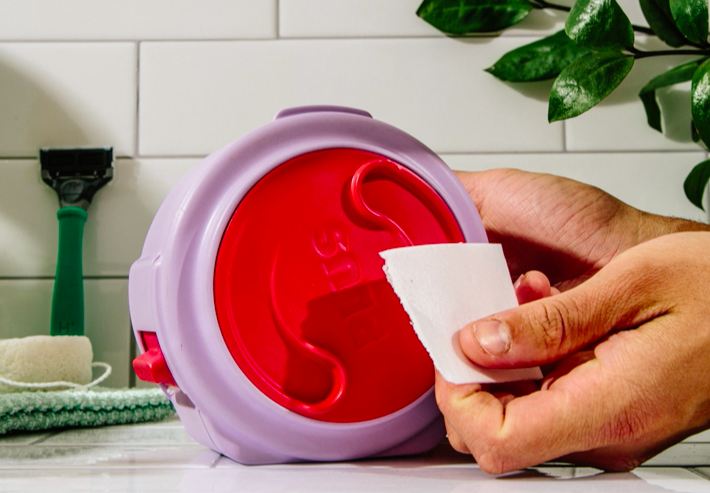
In response to growing consumer demand for products that help reduce waste, Target recently launched Target Zero, a collection of products intended to reduce single-use packaging.
In a recent press release, the Minneapolis-based retailer said the collection will feature items with packaging “designed to be refillable, reusable, compostable, made from recycled content or made from materials that reduce the use of plastic.”
How Target sees target single-use plastics in its bullseye
Customers will now see a Target Zero logo in stores and online on hundreds of products. Select products from Grove Collaborative and the company's private label, Everspring, are slated to join the collection in April. Burt’s Bees and Pacifica already offer several products that carry the Target Clean icon, which the company first introduced in 2019.
“We can’t wait to introduce our guests to Target Zero because we recognize their growing calls to find products that fit within their lifestyle, designed with sustainability in mind,” said Jill Sando, the company's executive vice president and chief merchandising officer. “Our aim with Target Zero is to keep delivering on their needs through our ever-evolving product assortment, as well as to give brands investing in reduced waste products and packaging an opportunity to have those products highlighted by Target.”
According to the company, Target Zero also marks one of the leading initiatives engaging its brand partners the corporation’s sustainability effort. Target says it has worked with various brands, and within its own private-label goods, to develop a portfolio of products included in this program’s first cohort. The company insists that it will work with various partners to expand the range of products that would qualify for the Target Zero label.
Products from the first group of such items include Burt’s Bees personal care products such as lip balms that are packaged in metal tins and thereby eschew the use of single-use plastics.

In addition, this portfolio has also added Plus body wash; the brand claims its manufacturing process eliminates excessive water consumption and waste. Come shower time, instead of pouring liquid out of yet another single-use plastic bottle, users pull dry strips out of a refillable case that looks like a tape dispenser (as shown in the photo above).
“Target Zero unlocks important progress toward our Target Forward ambitions, each of which require collaboration from our partners and action from our guests to be realized,” said Amanda Nusz, senior vice president of corporate responsibility who is also the president of the retailer’s philanthropic arm. “By making it easier for our guests to identify which products are designed to reduce waste, Target Zero helps them make informed decisions about what they purchase and advances a collective impact across our brand partners, our product shelves, and within our homes and communities.”
The retailer has set a goal of becoming a market leader for curating sustainable products by 2030. To start, Target says it will reduce the amount of virgin plastic used to package its private label products by 20 percent by 2025. By that same year, the company also pledges that it will make 100 percent of its private label products’ plastic packaging recyclable, compostable or reusable by 2025.
A call from consumers to make packaging less wasteful
Consumers are increasingly receptive to initiatives aimed at reducing unnecessary waste. In a 2020 research report released by Trivium Packaging and Boston Consulting Group (BCG) that polled more than 15,000 people, nearly 75 percent of them said they were willing to pay more for sustainable packaging; in fact, about 25 percent said they would even pay 10 percent or more for products encased in more responsible packaging. Almost 60 percent said they were less inclined to purchase products in “harmful” packaging – and about the same percentage said they associated plastic with that same word, harmful. Further, the Trivium-BCP report also showed increased awareness of the ongoing harm occurring in the world’s oceans, as 65 percent who participated in the same survey linked plastic to ocean pollution.
The sentiment that is driving Target and other retailers to revamp its product lines reverberates beyond the U.S. Last month, an Ipsos poll that surveyed citizens in 28 countries reported that on average, more than 80 percent of citizens agreed an international treaty was needed to tackle pollution from single-use plastic.
Image credits via Target

Gary E. Frank is a writer with more than 30 years of experience encompassing journalism, marketing, media relations, speech writing, university communications and corporate communications.














